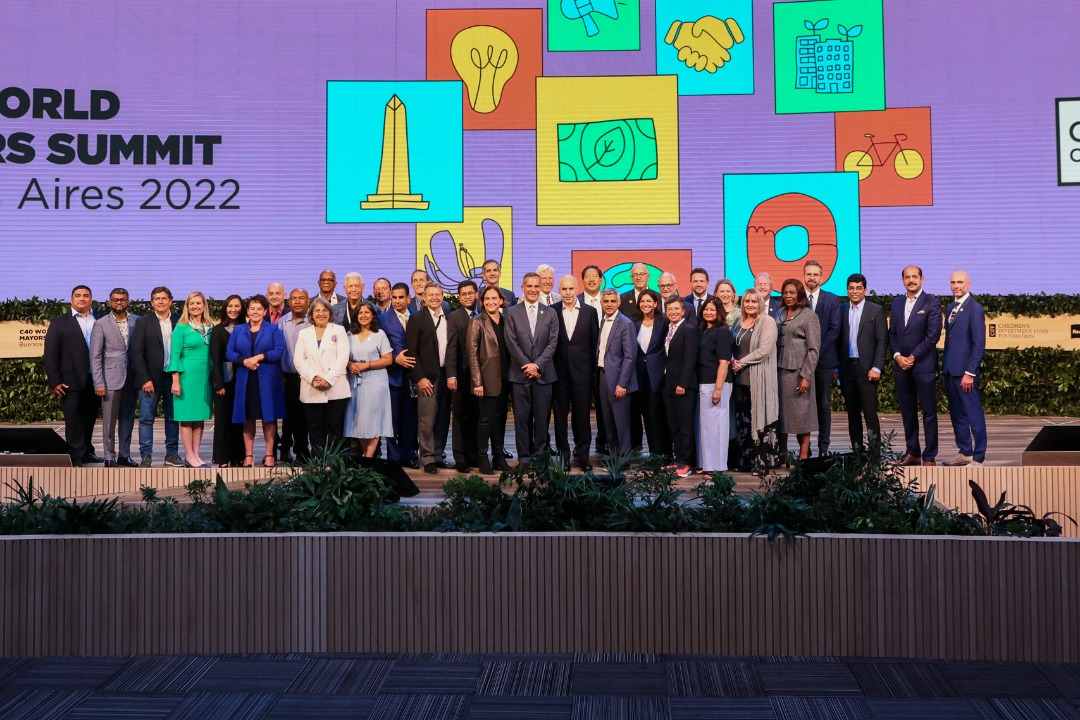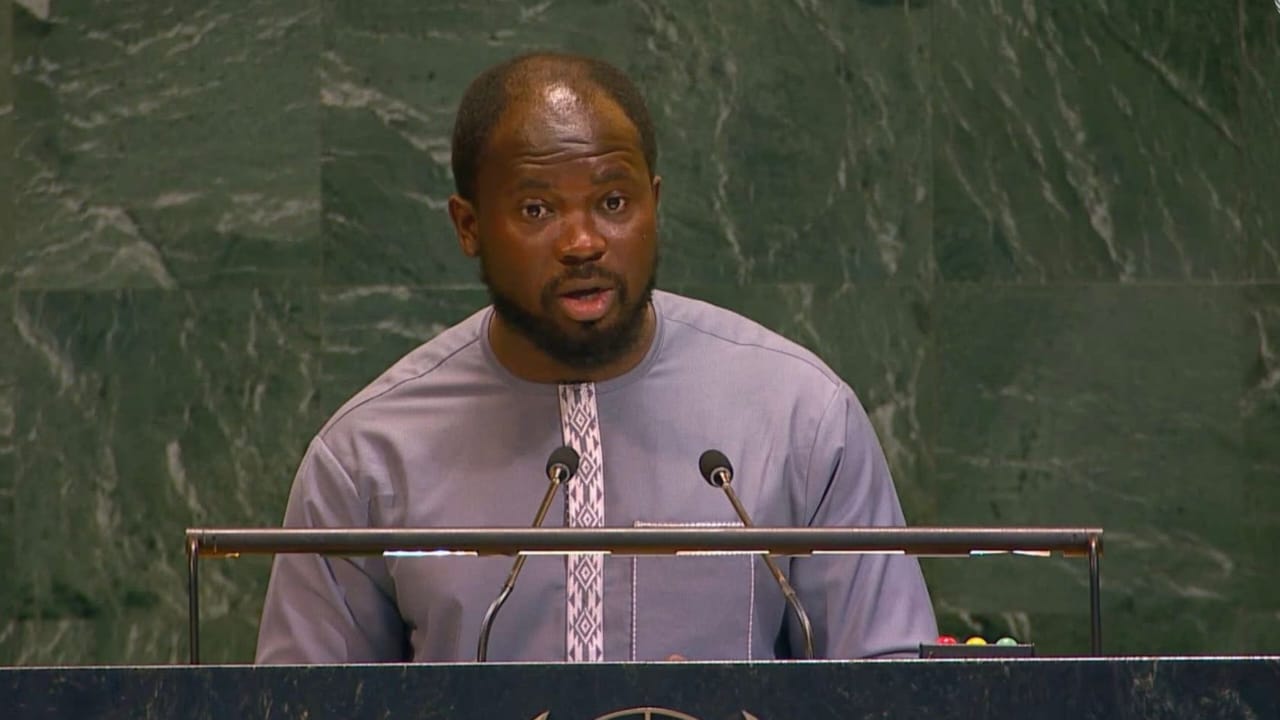Thirteen C40 cities have signed up to the Pathway Towards Zero Waste, committing to a 2030 target of providing timely city-wide waste collection services, treating at least 30% of organic waste and reducing waste disposal
emissions by at least 30%
● With waste representing up to 35% of overall municipal emissions in Global South cities, this commitment will deliver massive climate benefits through the reduction of up to 1 million tonnes of methane emissions per year
● The impact of this saving on the climate is significant; 1 kilogram of food waste dumped has the same global warming potential as burning one litre of gasoline, with methane’s contribution to global warming being 87 times higher than CO2 in the near term
● The commitment will also have a significant impact on city residents, helping to reduce polluted water and air, boost public health, reduce the spread of disease, provide food & water security and economic opportunity, and restore soil health 21 October, 2022 — Thirteen Global South cities have signed up to C40’s Pathway Towards Zero Waste, which aims to slash waste emissions and set cities on a path to a cleaner, healthier, more resilient and inclusive future.
The Pathway’s launch was announced today at the C40 World Mayors Summit in Buenos Aires, Argentina. Inaugural signatories are the cities of Accra, Amman, Bengaluru, Buenos Aires, Curitiba, Dar es Salaam, Durban, Ekurhuleni, Freetown, Nairobi, Quito, Rio de Janeiro and Tshwane.
The UN Intergovernmental Panel on Climate Change has stressed that reducing methane emissions is the fastest way to tackle global warming. Every 1kg of food waste disposed of in dumpsites and landfills not only pollutes the soil and underground water, but has the same climate impact as burning 1 litre of petrol.
In most Global South cities, including those across Africa, Latin America, South East and Southwest Asia, waste is a large contributor to municipal emissions, and in some regions can represent up to 35% of municipal overall emissions, primarily from methane generated at dumpsites and landfills. This is hugely detrimental to the environment, as
methane’s contribution to global warming is 87 times higher than CO2 in the near term. C40 cities in the Global South generate more than 2 million tonnes of methane per year.
The thirteen cities that have signed the Pathway have taken a crucial step to reduce emissions in their cities, in line with C40’s Towards Zero Waste Accelerator. By signing up to the Pathway, cities commit to working toward a set of ambitious targets by 2030, including providing timely city-wide waste collection services, treating at least 30% of
organic waste and reducing waste disposal emissions by at least 30%. To reach these targets, cities may pursue a variety of interventions, including the development of sanitary landfills (with landfill gas capture), improving informal sector working conditions, introducing a comprehensive recycling system and waste segregation framework,
phasing out organic waste disposal, restricting single-use items and phasing out non-recyclable materials.
This commitment on waste and organics’ recovery will yield enormous benefits for the climate, health, food and water security, economic opportunity and soil restoration. By reducing the disposal of food waste and improving waste operations and infrastructure, cities can work to avoid the worst impacts of climate change for this generation and
deliver local benefits to our communities.
Many C40 cities are already making significant progress toward meeting this commitment. Sao Paulo has introduced composting for fruit and vegetable markets, resulting in a total of 7,100 tons of organic waste having been collected and treated between January and August of 2020. This generated 1,400 tons of compost that was then used as fertiliser in municipal parks. Lagos has improved waste collection, reinventing its waste systems and incentivising social entrepreneurship. Rio de Janeiro has engaged with the informal sector, boosting representation, which is also the case in Accra, where increased recognition has formalised the positions of 850 workers and increased wasteb collection by 10%, and Addis Ababa, which has engaged community cooperatives to increase organics treatment capacity and reduce uncollected waste and disposal.
Similarly, Buenos Aires has introduced waste cooperatives, helping to formalise informal waste collectors, increase recycling rates and improve living conditions. In addition, the introduction of a city-wide two-stream segregated collection has led to a reduction in waste disposed at landfills, while a food waste collection initiative, through drop-off sites for households, has helped cement new habits among residents. Durban has focused on world class, cost effective, sanitary landfill conservancies and reforestation efforts that has helped to generate jobs and transformed exhausted landfills into conservation areas for local wildlife.
C40 Executive Director Mark Watts said: “I’m delighted that thirteen C40 Global South cities will be delivering science-based action on climate by joining the Pathway Towards Zero Waste. Waste is one of the key areas for which city governments are responsible, and taking this step will make cities cleaner, healthier, more resilient, create better jobs and reduce 1 million tonnes of methane emissions each year. We hope these pioneer C40 mayors will provide inspiration to Global South cities across the world who are looking to slash pollution while creating better jobs and improving public health.” His Excellency Dr. Yousef Al-Shawarbeh, Mayor of Amman, said: “The City of Amman
commits to leading the way to integrate solid waste management and to fight climate change. Partnering with the private sector and heading towards zero waste will benefit all of our community members as we reduce carbon emissions, become more resilient to global heating and create good, green jobs within a healthier, less polluted and
resource-friendly city.” Buenos Aires Mayor Horacio Rodríguez Larreta said: “To lead the way towards the
reduction and proper management of waste together with other cities in the world is a great opportunity for concrete action in the fight against climate change. Urban waste is one of the largest sources of greenhouse gas emissions, and its correct management is one of the greatest challenges that cities face on a daily basis. With such measures, our
cities will be cleaner, healthier, more resilient and more inclusive.” Curitiba Mayor Rafael Greca said: “Together, we will work to share this initiative and seek solutions to address climate challenges. Our commitment is a preventive measure to ensure that our cities are cleaner, healthier, smarter and more resilient for future generations, while providing decent work conditions to waste pickers, our fellow citizens. Through this initiative, we also hope to strengthen local reuse and recycling capacity in order to achieve our goals.”
Durban Mayor Mxolisi Kaunda said: “EThekwini Municipality is making a commitment to
take up the Pathway Towards Zero Waste. Our pledge with the proposed actions should
prove our ambitions for a transformative waste management process towards waste
reduction. Our commitment also substantiates the principles within our Durban Climate
Change Strategy as well as the implementation of the Deadline 2020 Climate Action Plan
targets. The associated opportunities also align well with our COVID-19 Economic
Recovery Plan, which calls for inclusive green economy. EThekwini Municipality’s
commitment towards a wastefree city will form a vital component in achieving our vision
to become the most livable and sustainable city.”
Quito Mayor Santiago Guarderas Izquierdo said: “With regards to solid waste management, the Metropolitan District of Quito is committed to the implementation of a new management model which, aligned with the framework of ‘citizen co-responsibility,’
‘zero waste’ and ‘inclusive circular economy,’ prioritises waste prevention, reduction and
recovery.”
Tshwane Executive Mayor Randall Williams said: “The City of Tshwane is committed to promoting climate-smart waste management through innovative waste minimisation, separation, recycling and transportation. As part of this initiative, the City will prioritize diverting organic waste from landfill, increasing the rate of timely waste collection
services, especially in informal settlements, and partnering with the private sector to sustainably process and treat waste. I look forward to collaborating with C40 and other key stakeholders to accelerate the achievement of the Pathway Towards Zero Waste and build a more sustainable, healthier and economically vibrant capital city.”
About C40 Cities
C40 is a network of nearly 100 mayors of the world’s leading cities who are working to deliver the urgent action needed right now to confront the climate crisis and create a future where everyone, everywhere can thrive. Mayors of C40 cities are committed to using a science-based and people-focused approach to help the world limit global heating to 1.5°C and build healthy, equitable and resilient communities. Through a Global Green New Deal, mayors are working alongside a broad coalition of representatives from labour, business, the youth climate movement and civil society to go further and faster than ever before.
The current Chair of C40 is Mayor of London Sadiq Khan; and three-term Mayor of New
York City Michael R. Bloomberg serves as President of the Board. C40’s work is made
possible by our three strategic funders: Bloomberg Philanthropies, Children’s Investment
Fund Foundation (CIFF), and Realdania.
To learn more about the work of C40 and our cities, please visit our website, or follow us on
Twitter, Instagram, Facebook and LinkedIn.








